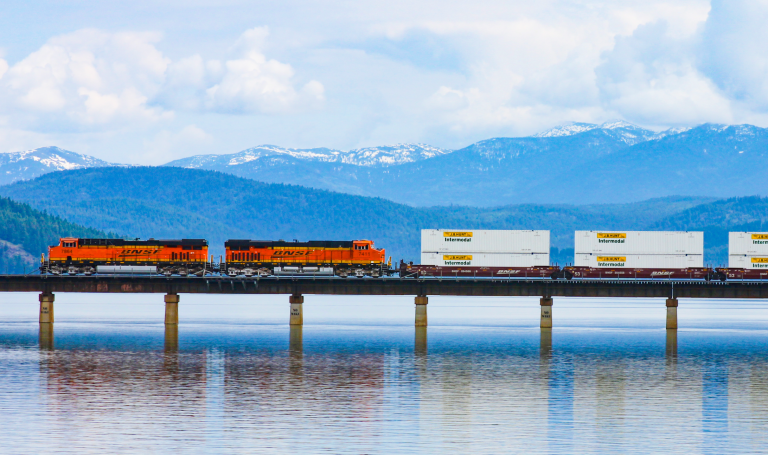President Joe Biden and Speaker Nancy Pelosi are moving to prevent a looming shutdown of the nation’s freight railroads with the House preparing to take up legislation this week to impose a settlement over the objections of some unions.
Biden said in a statement Monday that lawmakers should “immediately” codify the agreement he helped broker in September between unions and railroads “without any modifications or delay,” after some labor groups voted to reject it.
Biden’s intervention underscores the administration’s growing concern about the possibility of a work stoppage on freight rail lines. A strike could wreak havoc on the US economy by crippling supply chains, disrupting passenger rail travel and preventing key materials from reaching water treatment plants.
Unions and railroads have until Dec. 9 to avoid a strike, and a negotiated agreement now appears unlikely.
Of a total of 13 labor agreements among the 12 unions representing different types of rail workers, nine have been ratified and four were struck down by members. Tensions rose after the largest union representing about 28,000 workers, mostly conductors, voted it down, with 51% against, in results released on Nov. 21.
Congress can intervene to stop a strike under federal law. Pelosi said the House would consider legislation this week to adopt the tentative September agreement.
Freight rail companies urged Congress to act quickly.
The September agreement, though, does not include sick leave, a key issue for freight-rail workers, who have sought to guarantee medical time off and other benefits.
Tony Cardwell, president of the Brotherhood of Maintenance of Way Employes, said he would oppose any legislation that doesn’t include paid sick days. BMWED was one of four unions that voted down the proposed agreement, and Cardwell said he would stand by his members.
The threat of congressional intervention already robbed unions of leverage, Cardwell said. Freight-rail carriers last week turned down the union’s latest offer of four paid sick days — down from the initial request of 15 — knowing Congress would step in, he said.
Cardwell said he had been on the phone all day trying to shore up support for paid sick days in the forthcoming legislation.
Pelosi in her statement praised the September deal for “including a 24% raise, no changes in copays, deductibles or coinsurance costs, some time off for routine, preventative and emergency medical care,” but said Democrats would continue to “fight for more of railroad workers’ priorities, including paid sick leave.”
The White House signaled earlier Monday it would not let a shutdown of freight rail lines cripple the economy, with a spokeswoman noting that Congress has repeatedly intervened in the past to prevent work stoppages.
Congressional action to stop a strike isn’t a foregone conclusion. Legislation could run into objections from progressive Democrats because unions, a powerful Democratic constituency, oppose it. Senate procedures are more complicated, so getting a bill passed by the deadline would probably require all 100 members to agree on holding a quick vote.
Senator Bernie Sanders, an independent from Vermont, said he would support a rail strike bill if it guarantees sick leave benefits.
The Senate Commerce Committee’s top Republican, Roger Wicker of Mississippi, said Congress must pass legislation to avert the strike.
However, Senate Finance Committee Chairman Ron Wyden, an Oregon Democrat, said a bill on the rail strike has been discussed but that it would be a “challenge” to get it done by the deadline.


